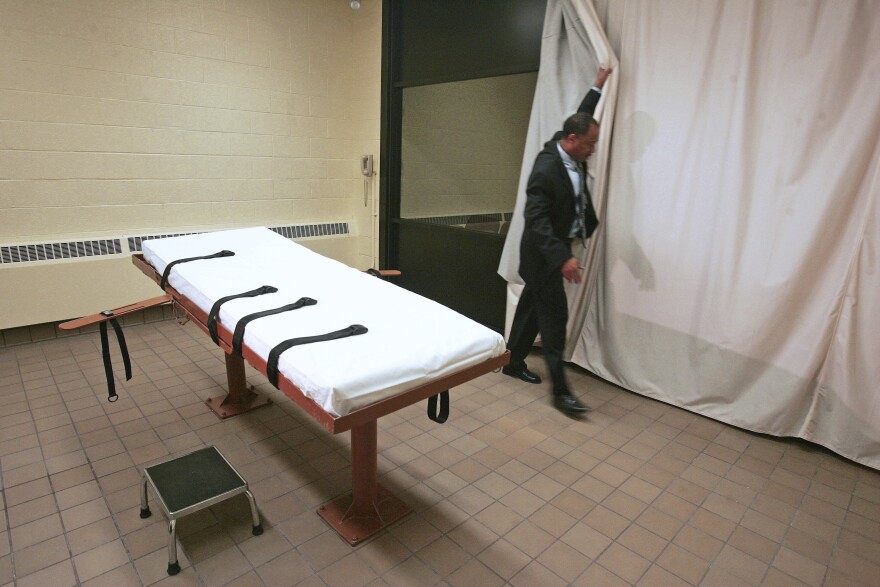Gov. Mike DeWine delayed three more executions set for May, July and September while the state develops a new lethal injection process.
DeWine already delayed the execution of Wayne Keith Henness scheduled for February, after federal judge Michael Merz expressed concern that inmates could suffer severe pain during lethal injection.
DeWine said at an Ohio Associated Press forum last month that he wants an execution method that can stand up to federal court scrutiny.
“Ohio is not going to execute somebody on my watch when Ohio has found it to be cruel and unusual punishment,” DeWine said.
Ohio’s lethal injection mixture includes the controversial sedative midazolam, which caused Dennis McGuire to appear to be gasping and choking in his 2014 execution, though a prisons department report concluded he didn’t suffer pain or distress.
Midazolam has also been connected with problematic executions in Arizona, Florida and Oklahoma.
DeWine said Thursday it was “highly unlikely” any new injection process would make it through expected lawsuits in time for the next three executions.
The governor "is also mindful of the emotional trauma experienced by victims' families, prosecutors, law enforcement, and DRC employees when an execution is prepared for and then rescheduled," DeWine's office said in a statement.
The inmates affected by the decision, their old execution dates, and their new dates:
- Cleveland Jackson. Originally scheduled to die May 29 for fatally shooting a 17-year-old in Lima in 2002 in a bloody drug-related robbery on a crowded home. New date: Nov. 13.
- Kareem Jackson. Originally scheduled to die July 10 for shooting and killing two men in Columbus during a 1997 robbery. New date: Jan. 16, 2020.
- Gregory Lott. Originally scheduled to die Aug. 14 for setting an 82-year-old man on fire in a 1986 East Cleveland robbery. New date: March 12, 2020.
In January, following the judge's ruling, DeWine rescheduled the execution of Keith Henness from Feb. 13 to Sept. 12.
Henness was convicted of killing 51-year-old Richard Myers in Columbus in 1992. Authorities say Myers had been helping Henness find a drug treatment for his wife.
Whether any of these four executions happens on the new dates is up in the air. Ohio, like other death penalty states, has struggled to find drugs for lethal injection. Even if it announced a new procedure this month, the method would then undergo months or years of court scrutiny.
After Ohio started looking for new drugs in 2014, it took the state more than three years to establish its current three-drug lethal injection protocol. Since then, it has become even more difficult for states to find drugs.
"Ohio's not going to execute someone under my watch when a federal judge has found it to be cruel and unusual punishment," DeWine said last month.
Because of Ohio's use of midazolam, Merz called the constitutionality of the state's system into question in his Jan. 14 ruling.
A veteran prosecutor with jurisdiction over the Kareem Jackson case said Thursday it's time for Ohio lawmakers to consider other execution methods, such as nitrogen gas.
Such a review is needed "to avoid repeated delays of lawful sentences that have been upheld after years of post-conviction litigation," said Franklin County prosecutor Ron O'Brien. O'Brien is a longtime critic of such delays.
But Cuyahoga County prosecutor Michael O'Malley, with jurisdiction over the Gregory Lott case, said DeWine's decision was the right call, given Merz's ruling.
"We look forward to justice being served in March of 2020," said Tyler Sinclair, an O'Malley spokesman.




